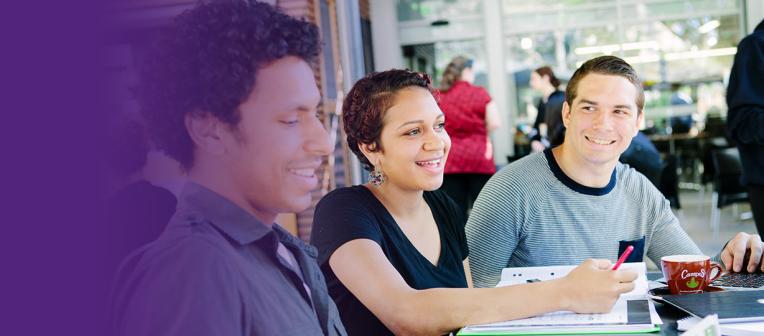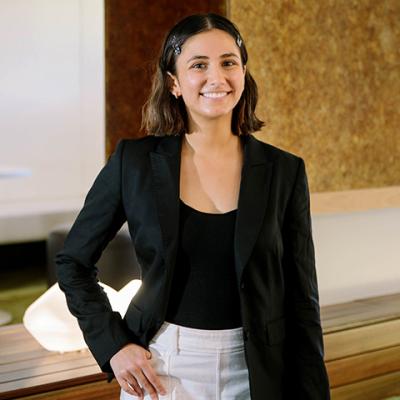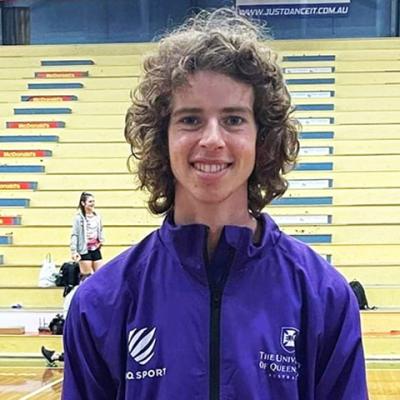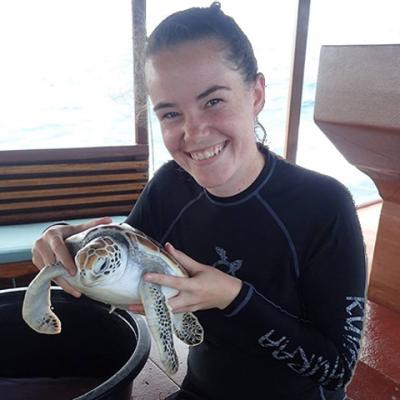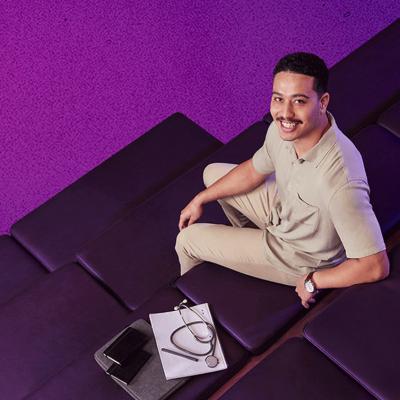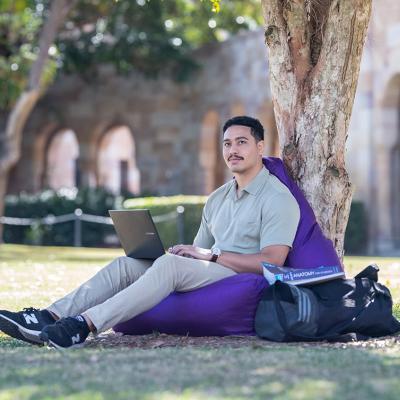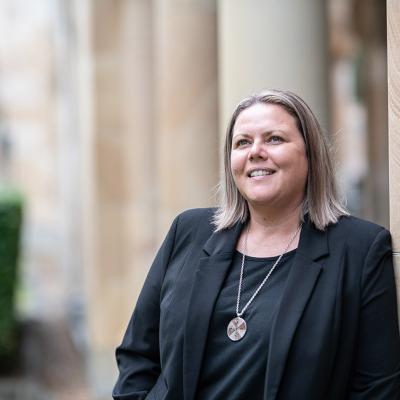The University of Queensland is a place where many students discover new ways to give back to the community and learn how they can make change locally and around the world.
Nicole is a proud Iningai, Gubbi Gubbi and Italian woman
From the wide range of study areas to the multicultural student body, UQ is a richly diverse community. The reasons our students choose to study here are just as varied as the students themselves.
However, one motivation is common across many people – the drive to give back to their communities. Whether that means making environmental change in the world or improving health outcomes for a local neighbourhood, giving back to the community is important to many of our students.
Here’s how some of our Aboriginal and Torres Strait Islander students are planning to use what they learn at UQ to improve lives in their hometowns, heal Country, and more.
Connecting spirituality with technology
Waanyi man Otis Carmichael hopes his Bachelor of Information Technology will enable him to help Indigenous communities switch on to the benefits technology can provide.
“Just because our mob has a focus on spiritual connection to Country does not mean they have to shy away from technology, which can play a huge role in communications and learning,” he says.
Otis believes learning about IT from a young age is what helped him discover and appreciate the mathematical and problem-solving capabilities of technology – and he wants more Indigenous children and teens to have a similar experience.
Otis received a scholarship from software developer Codebots to help him on his journey. The CEO of Codebots, Eban Escott, is excited to see how Otis will translate his degree into ways to give back to the community.
“His enthusiasm towards embracing technology and opening this opportunity up to Indigenous communities is inspiring,” says Eban.
“We cannot wait to see what Otis achieves in the coming years.”
Healing Country with science
Burubirangal (Dharug) woman Hannah Allan is undertaking a PhD that will help her play an important role in healing Country. Her research focuses on coral reef ecology.
“I have always been passionate about conservation and strongly believe everyone has a responsibility to look after the Country that they are on,” she says.
Hannah believes there are many factors required to protect the environment and preserve sacred sites. These steps include:
- empowering communities to manage Country
- embracing traditional knowledge systems
- acknowledging and rectifying historical injustices caused by dispossession.
Hannah sees NAIDOC Week as a great platform for starting important conversations around this topic, but she wishes these discussions could be a more regular focus for the community.
“NAIDOC week is a time to celebrate Indigenous excellence and cultures, educate ourselves and others, listen to truth-telling, and start some critical conversations,” she says.
“But in my opinion, this should be happening year-round.”
Hannah has recently received another small grant, supported by the Science Faculty and School of Biological Sciences. This grant was for running workshops with her project team, the BIOL First Nations Engagement Committee, to discuss First Nations inclusivity and diversity within the School.
These highly productive workshops facilitated important conversations around researchers engaging, collaborating and partnering with communities, and Hannah hopes to see engagement with Traditional Owners become more of a research priority as a result.
Addressing health inequality
Daurareb and Wakaid man Nathan Sagigi grew up on Thursday Island, where he saw many friends, family members and others in the community struggle with chronic diseases. His desire to improve lives for people back home has motivated him throughout his Bachelor of Clinical Exercise Physiology.
“In my family, we’ve had a lot of chronic disease and unfortunately lost family members to it,” he says.
“Hopefully, in the future, I’ll be able to help my relatives and friends improve their quality of life and lengthen their lives as well.”
“I’d also like to help close the gap in health between non-Indigenous and Indigenous people. That’s something I’m really passionate about.”
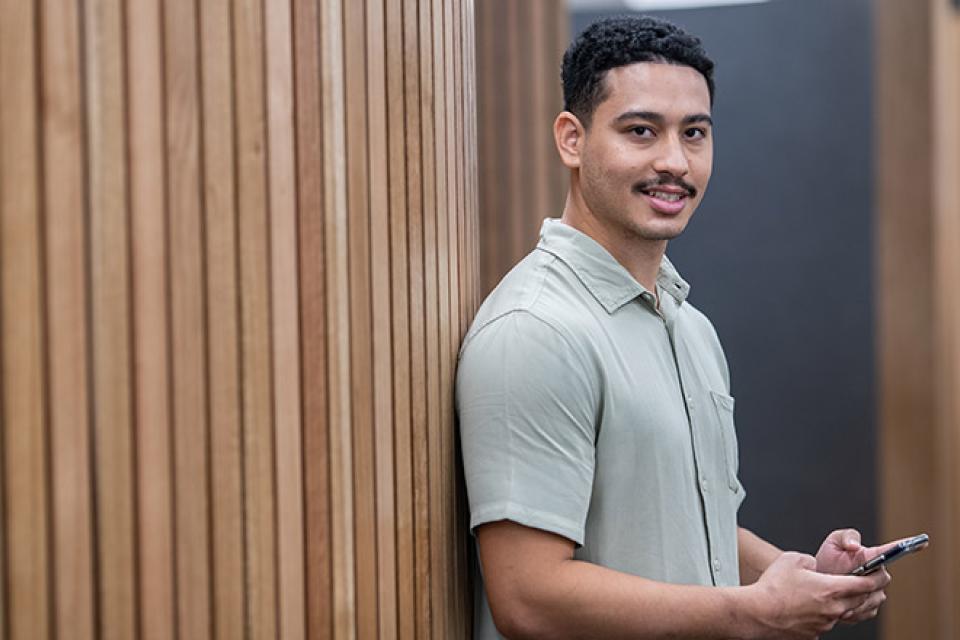
These are only 3 of the many students using their resources and time at UQ to pursue projects and jobs that give back to the community. We can’t wait to see how your journey with us will inspire and enable you to do the same.
Discover how UQ welcomes Aboriginal and Torres Strait Islander students to join our community.

